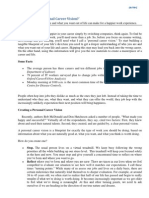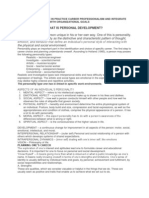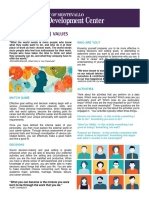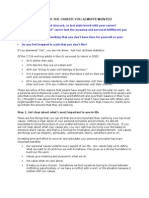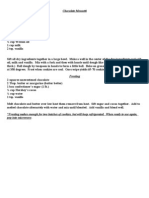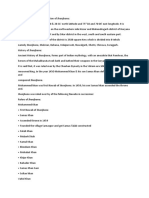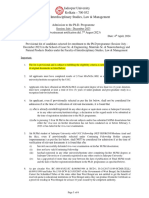0% found this document useful (0 votes)
25 views67 pagesTPM Action Guide
The Passion Manifesto is a comprehensive guide focused on personal development and career design. It emphasizes adopting the right mindset, understanding one's personality and values, and clarifying what one truly wants in life and work. The document provides structured exercises and reflections to help individuals identify their passions, create a mission statement, and develop a supportive environment for achieving their career goals.
Uploaded by
davidsevaconsultinggroupCopyright
© © All Rights Reserved
We take content rights seriously. If you suspect this is your content, claim it here.
Available Formats
Download as DOCX, PDF, TXT or read online on Scribd
0% found this document useful (0 votes)
25 views67 pagesTPM Action Guide
The Passion Manifesto is a comprehensive guide focused on personal development and career design. It emphasizes adopting the right mindset, understanding one's personality and values, and clarifying what one truly wants in life and work. The document provides structured exercises and reflections to help individuals identify their passions, create a mission statement, and develop a supportive environment for achieving their career goals.
Uploaded by
davidsevaconsultinggroupCopyright
© © All Rights Reserved
We take content rights seriously. If you suspect this is your content, claim it here.
Available Formats
Download as DOCX, PDF, TXT or read online on Scribd
/ 67












